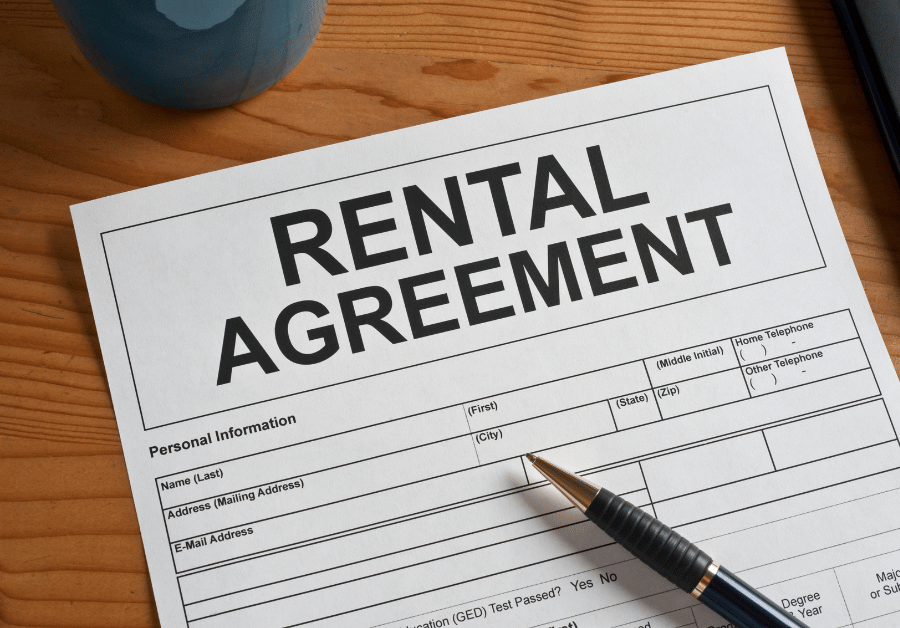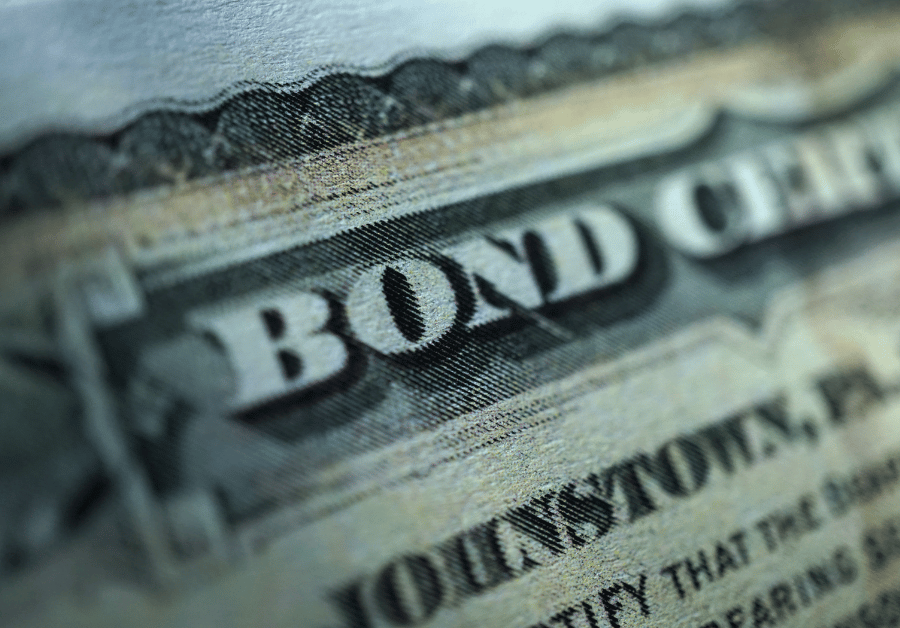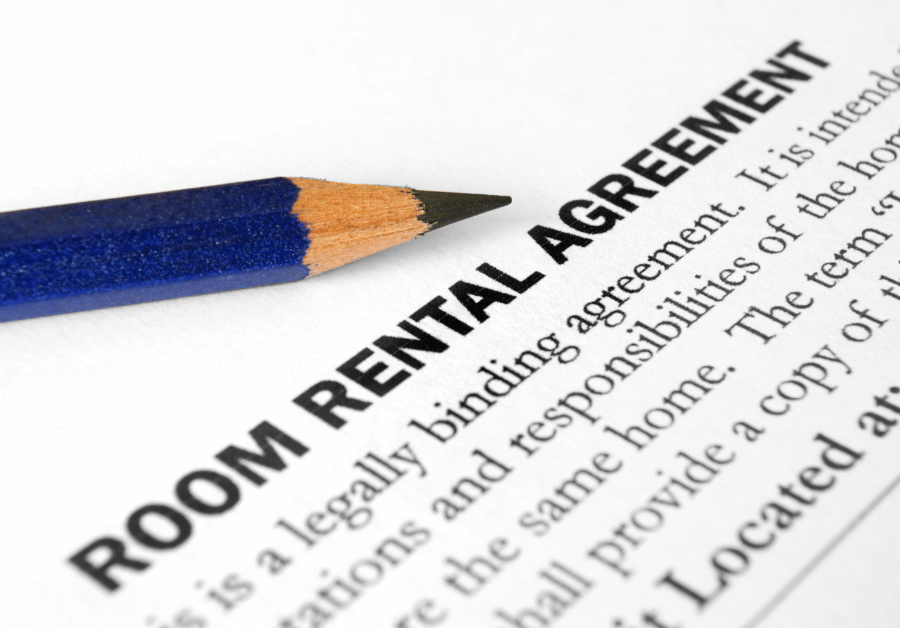Rental Bond Near Me: Your Essential Australian Guide
Navigating the rental market in Australia, especially when it comes to the dreaded rental bond, can feel like a complex maze. Whether you're a first-time renter, moving states, or just need to understand your rights, finding clear, reliable information about your rental bond near me is crucial. This comprehensive guide is designed to cut through the confusion, providing you with detailed, humanized insights tailored for renters across Australia, particularly in major cities like Sydney, Melbourne, Perth, Brisbane, Adelaide, and Hobart.
At Get 3 Quote, we understand the challenges of setting up a new home. While we connect you with trusted local service providers for various needs, we also believe in empowering you with essential knowledge. This article draws on our experience and understanding of the Australian rental landscape to help you master the ins and outs of your bond.
What Exactly is a Rental Bond?

A rental bond is a security deposit paid by a tenant at the start of a rental agreement (also known as a tenancy agreement or lease). It's typically held by a government body, not the landlord or property manager, to protect both parties. For the rental provider (landlord), it's a safeguard against unpaid rent, damage beyond fair wear and tear, or cleaning costs at the end of the tenancy. For the tenant, it ensures that your money is held securely and can be returned to you, provided you meet your obligations.
Understanding the basics of your rental bond is the first step towards a smooth tenancy. This includes knowing your rights regarding bond amounts, how it's paid, and crucially, how to get your bond refund at the end of your lease.
State-by-State Breakdown: Finding Your Rental Bond Information
Australia's rental laws are governed at the state and territory level, meaning the rules for your rental bond can vary significantly depending on where you live. This section provides a localized guide to help you find specific information for your area, from Sydney to Perth.
New South Wales (NSW): Sydney and Beyond
In NSW, the Residential Tenancies Act 2010 governs rental agreements. Your rental bond is lodged with NSW Fair Trading. They are the primary authority for all bond-related transactions and disputes. When searching for your rental bond near me in NSW, you'll typically interact with:
- NSW Fair Trading: The official body that holds and manages all residential bonds. They also provide information on rental laws, starting a tenancy, and ending a tenancy.
- Tenants' Union of NSW: A fantastic resource providing free advice and advocacy for renters. Their factsheets cover everything from bond payments and amounts to dispute resolution.
- Maximum Bond: Generally, the maximum bond that can be requested is four weeks' rent. There are specific rules for shared accommodation and long-term leases.
- Bond Search: You can perform a bond search online via the NSW Fair Trading website to 'look up your bond' and ensure it's been lodged correctly. If your bond search no result, contact them immediately.
For more details, visit the official NSW Fair Trading website or the Tenants' Union of NSW.
Victoria: Melbourne and Regional Areas
Victoria's rental landscape is managed by Consumer Affairs Victoria (CAV) and the Residential Tenancies Bond Authority (RTBA). If you're looking for rental bond near me in Melbourne, these are your key contacts:
- Residential Tenancies Bond Authority (RTBA): This is where all Victorian rental bonds are held. The RTBA online platform allows you to manage your bond, including lodging and claiming it.
- Consumer Affairs Victoria (CAV): Provides comprehensive information on residential tenancies, including bond rules, rights, and responsibilities. They are your go-to for understanding bond amounts and payments.
- RentAssist Bond Loan: If you need financial help, the RentAssist bond loan program (managed by Homes Victoria) can assist eligible Victorians with an interest-free loan for their bond. This is a crucial form of financial help for many private renters. You can find more information on the RentAssist bond scheme via Housing.vic.gov.au.
- Maximum Bond: For agreements entered into after 19 June 2019, the maximum bond is generally four weeks' rent if the weekly rent is $900 or less. If the weekly rent is more than $900, there's no limit.
Check the RTBA website or Consumer Affairs Victoria for the most accurate information.
Queensland: Brisbane and Beyond
In Queensland, the Residential Tenancies Authority (RTA) is the central body for all rental bond matters. For those seeking rental bond near me in Brisbane, the RTA is your definitive source:
- Residential Tenancies Authority (RTA): The RTA holds and manages all bonds in Queensland. Their RTA web services are robust, allowing for bonds online transactions, lodging, and refunds.
- Tenancies Authority: The RTA is the primary tenancies authority providing information and dispute resolution services.
- Maximum Bond: Generally, the maximum bond is four weeks' rent.
- Pet Bond: Queensland is one of the states where a separate pet bond can be requested, in addition to the general bond, if you have an approved pet. However, it cannot exceed one week's rent.
The RTA website is a comprehensive hub for all residential tenancies information in Queensland.
Western Australia: Perth and the West

Consumer Protection, a division of the Department of Mines, Industry Regulation and Safety (DMIRS), oversees tenancy laws in Western Australia. If you're looking for rental bond near me in Perth:
- Consumer Protection WA: Manages the bond lodgement scheme and provides advice on rental laws and tenant rights.
- Bond Administrator: All bonds are lodged with the Bond Administrator.
- Maximum Bond: The maximum bond is typically the equivalent of four weeks' rent. If the weekly rent is more than $1200, there is no maximum.
- Pet Bond: WA also allows for a separate pet bond. This can be requested if you have pets but cannot be more than $260.
For more information, refer to the Consumer Protection WA website.
South Australia: Adelaide and Regional SA
In South Australia, Consumer and Business Services (CBS) is responsible for administering the Residential Tenancies Act. For those in Adelaide seeking rental bond near me:
- Consumer and Business Services (CBS): Manages the Residential Bonds Lodgement Scheme. All bonds must be lodged with the CBS.
- Maximum Bond: The maximum bond is generally four weeks' rent. However, if the weekly rent is $250 or more, the maximum bond can be six weeks' rent.
The CBS website is the official source for tenancy information in South Australia.
Tasmania: Hobart and Beyond
Consumer, Building and Occupational Services (CBOS) is the regulatory body for residential tenancies in Tasmania. For information on rental bond near me in Hobart:
- Consumer, Building and Occupational Services (CBOS): Responsible for managing the bond lodgement system and providing guidance on rental laws.
- Maximum Bond: The maximum bond is generally four weeks' rent.
Visit the CBOS website for comprehensive details on Tasmanian rental regulations.
Key Aspects of Your Rental Bond Journey
Paying Your Bond: What You Must Know
When starting a tenancy, your rental provider or property manager will usually request the bond payment. It's critical that this payment is made directly to the relevant state or territory bond authority, or the rental provider must lodge it with the authority within a specified timeframe (e.g., 10 business days in NSW, VIC, QLD). Always ensure you receive a bond receipt or confirmation that your bond has been lodged. Never pay your bond directly to an individual landlord without ensuring it will be lodged with the official authority. This helps prevent rental scams.
If you're struggling to pay the bond, remember there are options like the RentAssist bond loan in Victoria or other bond loan services available across Australia. Organisations like Good Shepherd Australia also offer No Interest Loans (NILs) which can assist with bond payments.
The Importance of the Condition Report
Before moving in, you'll complete a condition report. This document details the property's condition at the start of your tenancy. It's incredibly important for protecting your bond refund. Take photos and videos, and ensure everything is accurately noted. This report will be your primary evidence when ending a tenancy and negotiating your bond return.
Bond Search: How to 'Look Up Your Bond'

Most state authorities offer an online bond search facility. This allows you to 'look up your bond' using your bond number, tenancy address, or even your name. This is a vital tool to confirm your bond has been properly lodged. If your bond search no result, or you can't find your bond, contact the relevant residential tenancies authority immediately.
Getting Your Bond Back: Ending a Tenancy
The process of getting your bond refund can sometimes be contentious. At the end of your tenancy, a final inspection is conducted against the initial condition report. The bond is then released, either fully or partially, depending on the property's condition and whether all rent and other charges have been paid.
Key tips for a smooth bond refund:
- Leave the property clean: Ensure it's returned in the same condition as when you moved in, allowing for fair wear and tear.
- Pay all outstanding rent and bills: Any unpaid amounts can be deducted from your bond.
- Fill out the bond claim form: Both you and the rental provider must sign the bond claim form.
- Disputes: If there's a disagreement, either party can apply to the relevant civil and administrative tribunal (e.g., NCAT in NSW, VCAT in Victoria) for a resolution. The bond authority will not release the bond without agreement or a tribunal order.
Understanding Pet Bonds and Extra Bonds
As mentioned, some states like Queensland and Western Australia allow for a separate pet bond. This is specifically for potential damage caused by pets. It's important to understand that this is distinct from your general rental bond. In some rare cases, an extra bond might be requested for specific circumstances, but this is less common and usually subject to strict rules.
Financial Help for Your Rental Bond
Securing a rental bond can be a significant financial hurdle, especially with rising rent costs. Fortunately, there are options for financial help:
- State Government Bond Loans: As seen with Victoria's RentAssist bond loan, many states offer interest-free loans to eligible applicants. Research your state's housing or consumer affairs website for similar programs.
- No Interest Loans (NILs): Organisations like Good Shepherd Australia offer NILs for essential goods and services, which can include rental bonds. These loans are designed for people on low incomes.
- Community Support: Local charities and community organisations may offer limited assistance or referrals for bond payments.
Don't hesitate to explore these options if you need support with your rental bond. It's a common challenge, and help is available.
Key Rental Bond Details by State: A Quick Reference
To help you quickly grasp the key differences, here's a comparative overview:
| State/Territory | Bond Authority | Maximum Bond (General) | Pet Bond Allowed? | Bond Loan Program? |
|---|---|---|---|---|
| New South Wales (NSW) | NSW Fair Trading | 4 weeks' rent | No (part of general bond) | Yes (Bond Loan via Housing NSW) |
| Victoria (VIC) | Residential Tenancies Bond Authority (RTBA) | 4 weeks' rent (if <=$900/wk) | No (part of general bond) | Yes (RentAssist Bond Loan) |
| Queensland (QLD) | Residential Tenancies Authority (RTA) | 4 weeks' rent | Yes (max 1 week's rent) | Yes (Rental Grants Scheme via Dept. of Housing) |
| Western Australia (WA) | Bond Administrator (Consumer Protection) | 4 weeks' rent (if <=$1200/wk) | Yes (max $260) | Yes (Bond Assistance Loan via Dept. of Communities) |
| South Australia (SA) | Consumer and Business Services (CBS) | 4 weeks' rent (if <$250/wk), 6 weeks' rent (if >=$250/wk) | No (part of general bond) | Yes (Bond Guarantee Scheme via Housing SA) |
| Tasmania (TAS) | Consumer, Building and Occupational Services (CBOS) | 4 weeks' rent | No (part of general bond) | Yes (Housing Tasmania Private Rental Assistance) |
Beyond the Bond: Other Rental Considerations
While your rental bond is a major financial aspect, it's part of a larger picture. Remember to:
- Understand your Tenancy Agreement: Read every clause carefully before signing. This is your binding contract.
- Know Your Rights & Responsibilities: Familiarise yourself with state-specific rental laws. Websites like the Tenants' Union in your state are invaluable resources.
- Communicate with Your Property Manager/Landlord: Open and honest communication can prevent many disputes.
- Be Wary of Rental Scams: Never pay money or provide personal details without verifying the property and the landlord/agent.
- Question 1: How do I get my rental bond back at the end of a tenancy in Australia?Question 2: What should I do if my bond isn’t showing up in a bond search?
Your Rental Journey Starts Here
Understanding your rental bond is a vital part of a secure and stress-free tenancy in Australia. By knowing your rights, the specific regulations in your state (be it Sydney, Melbourne, Perth, Brisbane, Adelaide, or Hobart), and where to seek assistance, you can navigate the rental market with confidence.
For all your other home and business needs, remember that finding reliable local service providers doesn't have to be a hassle. At Get 3 Quote, we simplify the process. Just tell us what you need, get up to 3 detailed quotes from verified professionals, and choose the best match for your job.
Ready to find the perfect professional for your next project, big or small? Visit Get 3 Quote today and make your life easier!
